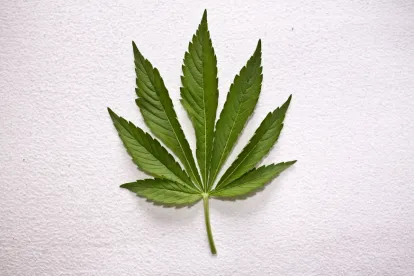Pot smokers are not the only ones lining up outside the local dispensaries; plaintiff personal injury attorneys are as well. Watching, lurking, waiting with dollar signs in their eyes for the chance to seek punitive damages, as many states allow damages beyond compensatory for intoxication-related injuries to others.
Using cannabis is not just a matter of rolling a joint or packing a bong anymore. Marijuana-related technology has evolved, resulting in multiple areas for the products liability legal community to watch. One of the most substantial areas of note is vaporizing. Vaporizing is generally considered to be the healthiest way to consume marijuana as the user is – supposedly – only inhaling the vapor of the THC, with some estimates saying the process eliminates as much of 95 percent of the smoke inhaled, which generally is easier on the lungs. The process involves heating the cannabinoids, often with mass-produced, pen-size batteries that boil the THC or CBD. Generally, the boiling point of CBD is 320°F – 356°F / 160°C -180°C. The boiling point of THC is 315°F / 157°C. However, these batteries have not been through extensive quality control and testing, and vaporizers come in all shapes and sizes – some can take up a whole coffee table while others look like a writing utensil.
But the issues presented to the products liability world only start there. The most significant risk to manufacturers and sellers of cannabis products is marijuana-infused edible products. The options for cannabis consumers are limitless. Manufacturers and their dispensary clients now offer pot brownies, pot cookies, pot soda, pot Swedish fish, pot sour gummies, pot gummy worms, pot truffles and more.
There already is one case where a cannabis-infused edible product has become the subject of a product liability lawsuit. In 2014, Richard Kirk purchased pot-infused candy, legal under Colorado law, from a licensed dispensary. The allegations are that neither the edibles’ manufacturer nor the store that sold them adequately warned of the bite-size candy’s potency. Mr. Kirk claims the edibles caused him to suffer from hallucinations. The lawsuit claims that both the company that made the marijuana edible and the store that sold the candy to Richard Kirk recklessly and purposefully failed to warn him about the bite-sized candy’s potency and possible side effects − including hallucinations and other psychotic behaviors, including paranoia. The paranoia and hallucinations Mr. Kirk experienced after ingesting the candy, his criminal defense attorney claims, led to him shooting and killing his wife. Their three children have now brought a civil law suit against the dispensary and the manufacturer of the pot-infused edible product. Mr. Kirk, their father, has been named as a co-defendant in the lawsuit.
Like any products liability matter, compliance with state requirements and industry standards for labeling and packaging products is imperative. However, there is still some unknown risk with these new products in the marketplace. Will existing measures be enough to prevent liability for the manufacturers and sellers of cannabis products? The answer is that no one truly knows yet. The truth is that states with legalized recreational cannabis will likely adjudicate products liability claims differently than states where marijuana is legalized for medical purposes only.
Furthermore, the right to prosecute such a claim may not be available to a plaintiff in federal court in those states where marijuana consumption and sale is legal under certain state law, given the fact it is still considered illegal under federal law as a schedule 1 narcotic. Also, there is very little judicial treatment of the potential risk issues facing manufacturers and sellers of cannabis in the states where it is legal, given the fact those laws have only come into place over the past few years. Even in the case of Mr. Kirk, it is near impossible to determine if his children’s case will have any impact at all on the cannabis industry. As regulated cannabis has evolved, so have the laws that are applied to those products.
But the truth is that the customer is buying a product commonly known to have an intoxicating effect. We don’t hold liquor stores responsible unless they sold to someone visibly intoxicated. But we do, as a society, hold product manufacturers liable for placing an unreasonably dangerous product on the market. This is a double-edged sword because just as there are no universally accepted long-term major studies linking cannabis use to psychosis, there are no such studies stating otherwise. And that has plaintiffs’ counsel seeing green − not for smoking but because this all sounds like a question of fact for a jury.


 />i
/>i

